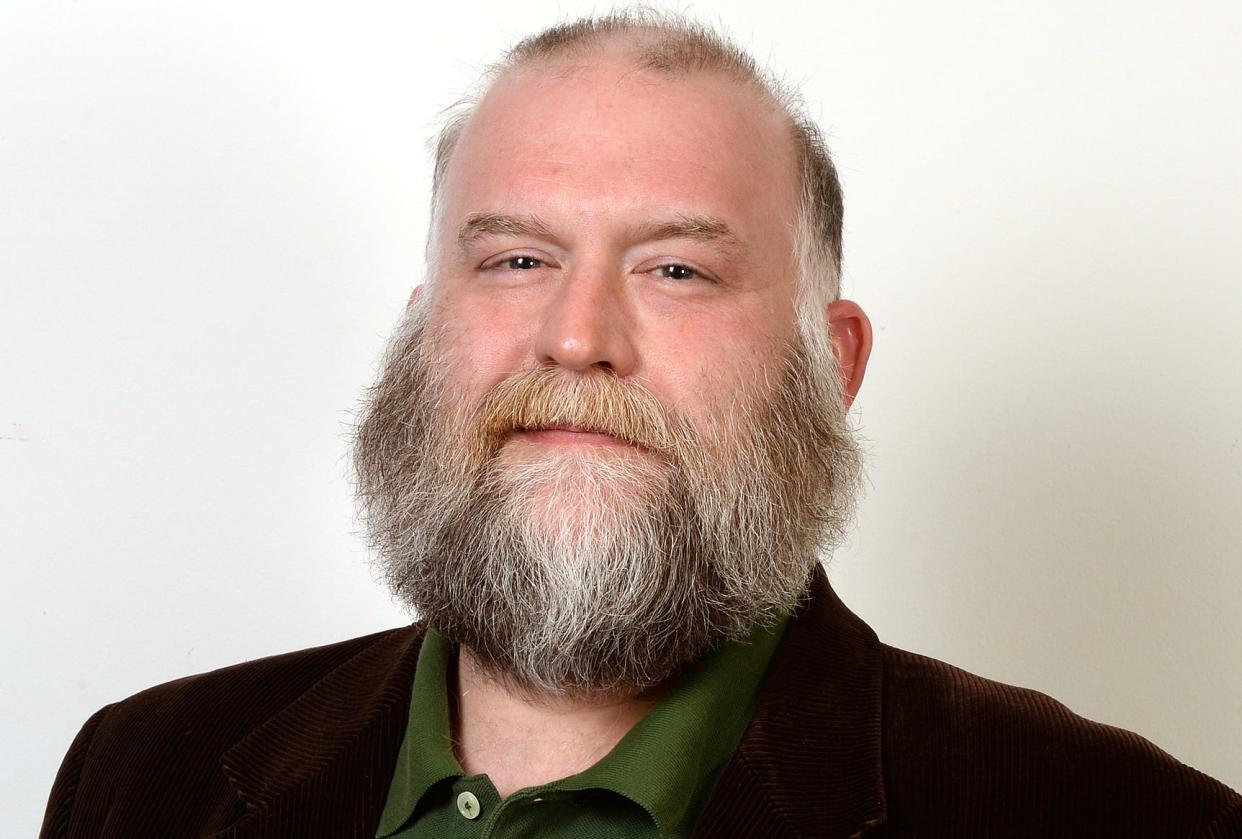David Murdock Column: On late September mornings (and the search for wisdom)

- Oops!Something went wrong.Please try again later.
Had she lived, Mom would have been 90 years old yesterday. Now, I didn’t forget that it was her birthday; in fact, I’ve been aware that it was coming up for a while. What I didn’t expect was how hard it would hit me this year. After all, Mom passed away more than 11 years ago.
That “crossing of the border” between what I know is going to happen and what it actually feels like when it happens always takes me by surprise a little. There is a very real difference between the expectation of a thing and the occurrence of a thing.
It sneaked up on me. Lately, I’ve been telling more “Mom stories” than usual. That should’ve been a hint, but it wasn’t. By last week, I had realized that her birthday was approaching, but what it was going to feel like didn’t occur to me at all.
DAVID MURDOCK COLUMN: On Mister Rogers (his Neighborhood and his ability to listen)
There are two recent events that framed Mom’s birthday this year. First, someone asked me a couple of weeks ago, “Where do you see yourself in five years?” That’s a standard icebreaker question that has always proven difficult to answer for me. Long ago, I found that it’s nigh impossible to answer that one honestly — “I don’t know” is usually my response. I go on to explain my plans, but that doesn’t say much, really. I don’t know where I’m going to be five years from now until five years from now.
To paraphrase the Scottish poet Robert Burns, “The best laid plans of mice and men often go astray.” We like to think that our plans will work out exactly as we think, but it’s been my experience that they rarely do. We should plan for the future, of course, but we should be aware that our plans will too often be changed by events.
Never would I ever have thought in 2017, for example, that we would have gone through the COVID-19 pandemic. Yes, I was aware of the possibility of a global pandemic, but experiencing it — the reality of it — changed everything. Even minor little things. Just the other day, I caught myself singing the “ABCs” while I washed my hands. That habit will likely last to the end of my days.
The other recent event that framed my reaction to Mom’s birthday this year happened early on the morning of the date: my morning devotional reading was from Psalm 90. Psalm 90 is one of my favorite psalms. It is unique among the Psalms in that it is attributed to Moses, and his prayer in verse 12 — “So teach us to number our days, that we may apply our hearts unto wisdom” — has always moved me deeply.
Psalm 90 is an example of the Wisdom literature of the Bible, books like Proverbs, Job and Ecclesiastes. There are examples of Wisdom literature in many ancient cultures, and the general idea is that these texts instruct us on how to live wisely. I’ve long been interested in this genre of literature, but I’ve only been really studying it since about 2012.
I can date this intense interest to that year because that’s when I ordered books on biblical Wisdom literature. And the date is not lost on me — it’s the year after Mom died. I suppose that’s when I really started to ponder the subject of wisdom.
Now, I notice numbers and their significances — that my devotional reading on Mom’s 90th birthday was Psalm 90 was not lost on me. Over my life, I’ve learned that coincidences aren’t always coincidental. Especially not if we attach significance to them.
MORE FROM DAVID MURDOCK COLUMN:On brand loyalty (and being picky about ink pens)
That verse begins, “So teach us to number our days,” for example. In context, it says to me that we should be aware of the times of our lives, especially considering that verse 10 begins, “The days of our years are threescore years and ten; and if by reason of strength they be fourscore years,” or our life expectancy is between 70 and 80 years. We should be aware of the transience of our lives as humans so “that we may apply our hearts unto wisdom.”
Not money, not fame, not the other fleeting pleasures of the world … wisdom.
And, I’ve applied my heart “unto wisdom” because I know I don’t have it. Wish I did, but I don’t. When I realized that fact years ago, it shook me up, shuddered me down deep. All that living I had done up to that point, and nothing. But I don’t suppose that I’d ever really thought about it. Now, I am thinking about it, and it seems like the more I learn, the less I know.
That goes back to what I said earlier about “crossing the border” between what I know and what it actually feels like when I get there. Lately, I’ve had many times when I’ve remembered something and thought something along the lines of, “Oh, that’s what Mom meant” or “That’s what Robert Burns meant” or … “That’s what Moses meant.” It’s one thing to know something, and it’s quite another to know something, to feel it in the gut instead of knowing it in the head — that’s the difference between knowledge and wisdom.
These late September mornings come laden with wisdom. And, despite sad memories, I’ve never been happier.
David Murdock is an English instructor at Gadsden State Community College. He can be contacted at murdockcolumn@yahoo.com. The opinions reflected are his own.
This article originally appeared on The Gadsden Times: David Murdock looks at the search for wisdom, late September mornings

